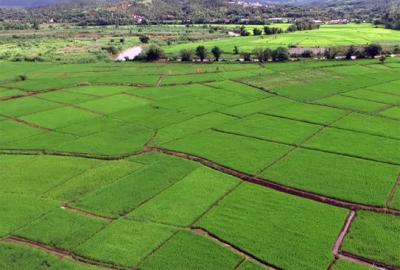DHAKA, April 8, 2018 (BSS) – Experts and policy-makers from rice producing countries last week concluded an international annual gathering with a strong recommendation of sharing the proven best practices for sustainable rice production.
Over 500 experts and policy-makers participated in a detail discussion in a two-day Responsible Business Forum (RBF) on food and agriculture in Indonesian capital Jakarta from March 27-28.
They ended the Forum with observation that sharing best practices would help smallholder farmers grow more rice at a lower cost, according to a web-posting of the International Rice Research Institute (IRRI).
The proven best practices in rise production include using clean seeds and a variety adjusted to a certain climate area, regular cleaning of equipment and the field from crop residue, planting at the same time as the farmer on the neighboring field, encouraging natural pest enemies and properly storing rice grain.
Decreasing water use, soil pollution and methane emissions are also some of the major basics of sustainable rice production.
A Food and Agriculture Organisation (FAO) report noted that Bangladesh is one of the major rice producing countries where smallholder farmers share major portion of farming population.
According to the report titled “The Economic Lives of Smallholder Farmer”, around six crore people in Bangladesh live on 1.2 crore small farms those are smaller than 1.70 acres.
Experts at the IRRI-sponsored discussion in Jakarta stressed the need for sharing the proven best practices in sustainable rice production among Asia’s smallholder rice farmers.
They also recommended that the government, private sector and the international development community should craft actionable plans and solutions to achieve the Sustainable Development Goals (SDGs), particularly on ending global hunger.
Rice is the world’s most important staple food, sustaining more than half of the global population. The crop is therefore central to the realisation of targets under the 2030 agenda for sustainable development, the expert and policy-makers said.



